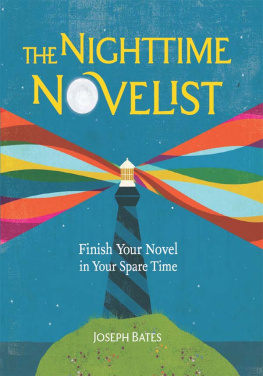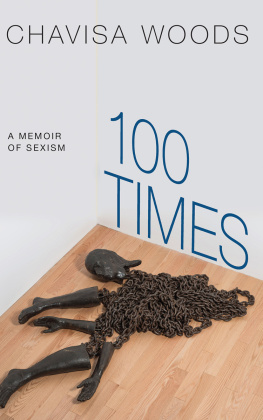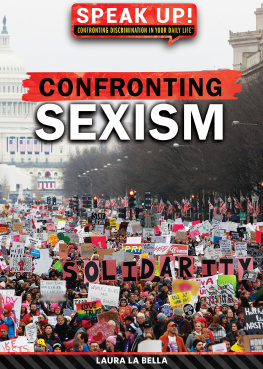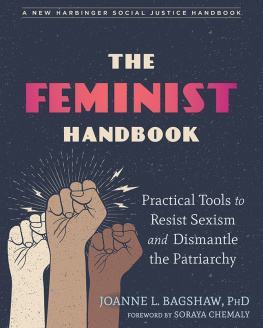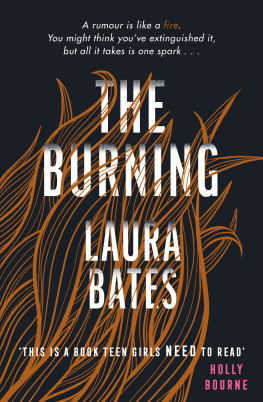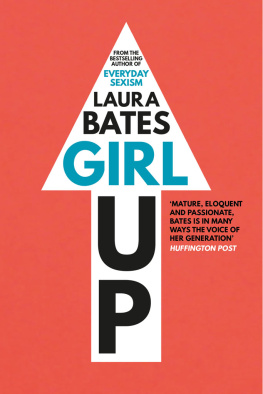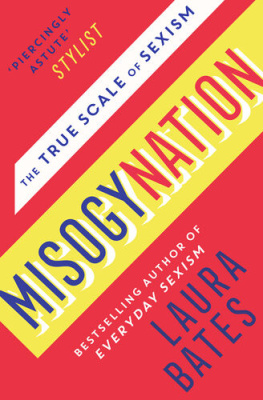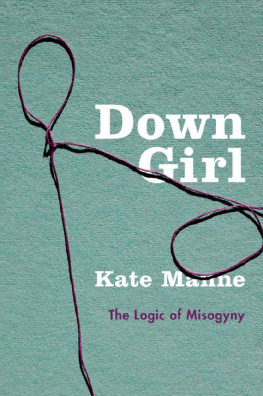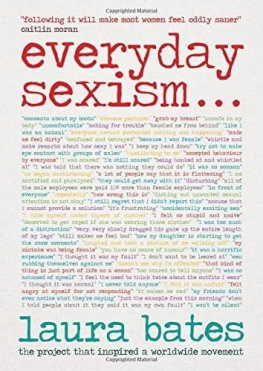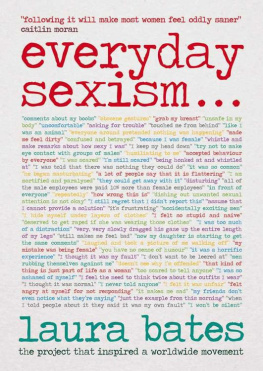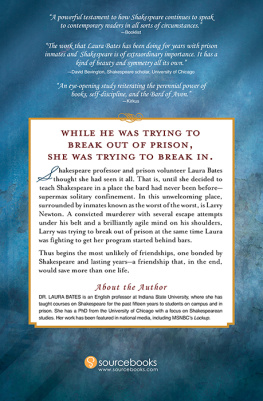For all the unsung heroes,
with deepest gratitude.
I NTRODUCTION
This book is not a labour of love. In many ways, it would be more accurately described as a labour of frustration, or of anger. I am angry at the fact that women face an epidemic of sexual violence. I am frustrated by the routine discrimination they suffer in the workplace, and furious that almost a third of them are groped against their will before they even leave school. I hate the sexual harassment that pursues them in the street and on to public transport, the misogynistic way in which they are portrayed in the media and the gender stereotypes that force many of them into low-paid, part-time work with little chance of promotion. I am shocked that women still bear the vast burden of unpaid caring work, enabling the economy to flourish while going unnoticed and unrewarded. Im outraged that 86 per cent of the cost of austerity has come from womens pockets, with vulnerable and poor women worst affected.
But perhaps most of all, it frustrates me that we fail to join the dots. We treat these and so many other problems as if they are entirely separate and unrelated issues. As if it is complete coincidence that a husbands murder of his wife, a man jailed for stalking and a woman whose hijab was ripped off in the street are reported on the front pages the very same day. We fail to see the pattern that is right in front of us and, in so doing, we fail its victims, over and over and over again.
When police warn women not to walk alone after a spate of assaults, when yet another new product pops up demanding women buy it to protect themselves from attack, when a politician is decried for having the audacity to complain about rape threats, all this is connected.
When we learn that women are dramatically underrepresented in our parliament and businesses and then see our prime minister and the Scottish first minister on the front pages under the headline Never mind Brexit, who won Legs-it!, these things are related.
When a newspaper runs an article describing rape as a romp or a jury acquits an accused rapist because of the previous sexual history of the accuser, these are not isolated incidents.
When a black woman is asked where the toilets are by a male attendee of the conference she is due to speak at, when a woman in a wheelchair is physically pushed aside by a man in the street, when a trans woman is bullied in the workplace or an older woman is completely ignored by a shop assistant, these are interconnected, not separate issues.
Until we join the dots, we havent any hope at all of stopping misogyny. We cant tackle any one of these incidents in isolation. We cant improve the representation of women on FTSE 100 boards or in our government without tackling the mindless, racist gender stereotyping that sets girls sights lower and constrains their ambition before they even reach primary school. We cant resolve the scourge of domestic violence or female genital mutilation without also taking on the societal norms that see women routinely spoken about, and to, as if they are second-class citizens whose sexuality exists solely to satisfy and be policed by men. We cant address the enormous gap in pay between men and women, or between white women and women of colour, without recognizing the overt and unconscious bias that exists at every level of the job market.
Nor is any of this coincidental. It is deliberate, systematic and ingrained. It is built into the systems, the institutions and organizations that make up our society. It is revealed in the fact that our senior judiciary is overwhelmingly dominated by white men; that our criminal justice system remains institutionally saturated with prejudice; it is evident in the pitiful statistics that reveal women make up less than a quarter of professors at UK universities and that, at the time of writing, no black academics have worked in senior management in any British university for the past three years. That no woman has ever held the position of chancellor of the exchequer, BBC director-general or governor of the Bank of England. That in the five years leading up to 2015, just four black women appeared on the flagship BBC current affairs programme Question Time . That there is just one female editor of a major UK daily newspaper and over three-quarters of front-page articles are written by men.
Whats more, the cycle of acceptance is perpetuated by the fact that women are groomed their whole lives to consider these experiences inevitable, and society is conditioned to see them as normal. It is consolidated by the silence of those who witness the behaviour of men like Harvey Weinstein (accused of sexually harassing, raping and assaulting dozens of women over decades) and choose to turn a blind eye, complicit in their silence. It is enabled by the culture of workplaces, from Westminster downwards, where sexual harassment is dismissed as high jinks and women who dare to complain are branded troublemakers. And it is cemented by a media that responds to the first tentative allegations of such behaviour in decades with reports of a witch hunt gone too far.
We are so often told that these are unrelated problems. Lone wolf. Domestic affair. Isolated incident. These are the terms used to excuse and erase the crimes of middle-class white men. Yet to anybody paying any attention at all, day after day, week after week, the bigger picture is maddeningly apparent.
These columns grew out of frustration, out of a need to bear witness. To try, week after week, to say: Look! There, and there, and there again! See the pattern? See the similarities? They grew out of a hope that perhaps, by documenting as many as possible of these incidents of the type that are so often instead ignored, there might be a chance of the bigger picture emerging. And they grew, too, out of a sense of awe and admiration of the women who fight on, tirelessly, in spite of everything, striving to join the dots and change the picture.
So this book is a labour of anger, yes, and of frustration. But perhaps it is a labour of hope as well.
R IDICULOUS S EXIST A RGUMENTS B USTED
Being a feminist means listening to a lot of really stupid arguments. It simply comes with the territory. Peoples efforts to justify, excuse or deny sexism are so numerous that you can even divide them into different categories.
There are the self-defeating trolls: Theres no such thing as sexism... you stupid bitch.
The anti-feminists, who dont realize the answer is feminism: Why should I support womens rights when men still have to pick up the bill at dinner? (Answer: because feminism fights for women to have the financial independence required to split the cheque.)
And then theres the downright ludicrous. I once genuinely encountered somebody who argued that women in Saudi Arabia were lucky not to be allowed to drive because it meant they were involved in fewer car accidents.
Its no coincidence that a lot of these arguments arent logical. They dont spring from carefully considered reason, but from panic a knee-jerk terror that feminists, in fighting for equality, must be hell-bent on taking something away from men. Each and every small feminist advance, from recording misogyny as a hate crime to putting the image of a woman on a banknote, is met with a backlash. The irony is that these responses, which allege hysteria and PC gone mad are often far more hysterical and out of proportion than the developments they seek to criticize.
The widespread normalization of these arguments is what makes them so pernicious. We have all heard it said that women should take care walking alone at night, or that maternity leave puts an awful strain on businesses. These opinions are so frequently recycled that it is easy for them to become mistaken for facts. In an unequal society, much goes unchallenged because we are so used to hearing the ostensibly reasonable justifications that help to maintain the status quo. But when we begin to unpick some of these commonly recited mores we start to realize that the arguments weve accepted for so long are actually full of holes.


